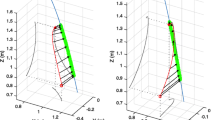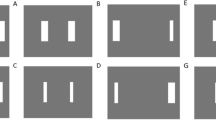Abstract.
The effects of temporal precision constraints and movement amplitude on performance of an interceptive aiming task were examined. Participants were required to strike a moving target object with a 'bat' by moving the bat along a straight path (constrained by a linear slide) perpendicular to the path of the target. Temporal precision constraints were defined in terms of the time period (or window) within which contact with the target was possible. Three time windows were used (approx. 35, 50 and 65 ms) and these were achieved either by manipulating the size of the bat (experiment 1a), the size of the target (experiment 1b) or the speed of the target (experiment 2). In all experiments, movement time (MT) increased in proportion to movement amplitude but was only affected by differences in the temporal precision constraint if this was achieved by variation in the target's speed. In this case the MT was approximately inversely proportional to target speed. Peak movement speed was affected by temporal accuracy constraints in all three experiments: participants reached higher speeds when the temporal precision required was greater. These results are discussed with reference to the speed-accuracy trade-off observed for temporally constrained aiming movements. It is suggested that the MT and speed of interceptive aiming movements may be understood as responses to the spatiotemporal constraints of the task.
Similar content being viewed by others
Author information
Authors and Affiliations
Additional information
Electronic Publication
Rights and permissions
About this article
Cite this article
Tresilian, J.R., Lonergan, A. Intercepting a moving target: effects of temporal precision constraints and movement amplitude. Exp Brain Res 142, 193–207 (2002). https://doi.org/10.1007/s00221-001-0920-9
Received:
Accepted:
Issue Date:
DOI: https://doi.org/10.1007/s00221-001-0920-9




